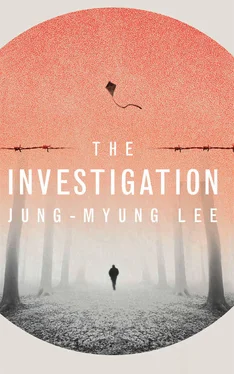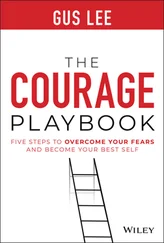This poem was shockingly different from his others. Violent emotion and condensed rage sprang from every line, taking the place of mild contemplation and private musing. Fire leaped in Dong-ju’s eyes, but when he addressed me his voice was calm. ‘I tried to publish a book of poetry just before graduating from Yonhi College in 1940. I collected nineteen poems, but as the poems were written in Korean, they wouldn’t have passed the Japanese government’s censorship. My mentor persuaded me not to publish the volume, for fear of my life. The Sky, the Stars, the Wind and Poetry ’, he continued, sighing. ‘That’s what it was supposed to be titled.’
I sat up straight. ‘Did you say The Sky, the Stars, the Wind and Poetry ?’
He nodded.
‘Not The Sky, the Wind, the Stars and Poetry ? And didn’t you graduate from Yonhi College in 1941, not 1940?’
‘What does that matter?’ He gave me a puzzled look.
None of it would matter if he were anyone else. But this was Dong-ju. And these were seminal moments in his life that he couldn’t possibly forget.
‘You can’t really trust your memory anyway,’ he remarked, flashing me an easy smile.
I was troubled. Was it lack of nutrition? Was it the hard labour? Or had he been beaten too much? I could only hope that his confusion was temporary. Something was definitely wrong. Something was gnawing away at him. His face was thinner and his physique even gaunter. Even the smallest wounds didn’t heal quickly and he spent more time staring blankly up at the sky. Once he confused Caesar and Augustus, and on another occasion he mixed up Stendhal with Hugo.
He coughed into his uniform sleeve: it was wet with blood. I pushed his sleeve up and saw a long cut that was mottled with blood.
‘It’s nothing,’ he said. ‘Near the end of the day my cart tipped and I got scratched by an ammunition case. It won’t stop bleeding. Maybe because I’m not eating well?’
‘Why haven’t you said anything?’ I shouted. ‘It’s been over two hours!’ I undid my gaiters and used them to bind his forearm.
Dong-ju gazed at me with murky eyes. ‘It’s because of the weather. I’ll get better when spring comes. At least I’m getting medical treatment.’
‘I can’t wait for this awful winter to end.’
His eyes regained their focus. ‘Spring comes only after brutal cold and fierce snowstorms. Just as a rainbow appears only after a shower, beauty comes after hardship. Beauty without suffering is meaningless.’
‘When you go to the infirmary, tell them exactly what your symptoms are,’ I ordered. ‘Hopefully they’ll be able to prescribe proper medication or give you a shot.’
He coughed. ‘I’m not the only one. Everyone’s eyesight and memories are failing, too. The doctors say all of these are temporary reactions because the infusions are a shock to our systems. They told us we’ll get better if we continue with the treatment.’
I looked him over carefully. His once-handsome face was unrecognizable from ringworm and the constant beatings by my fellow guards.
His eyes glazed over again, like a dusty sheet of glass. ‘Don’t worry!’ Dong-ju said, smiling. ‘I’m going to survive. I’m walking out of this place on my own two feet.’
A thought flashed through my head — I knew who could help us. Midori. I got Dong-ju to his feet. At the steel gates that led to the infirmary corridor I told the guard that I was escorting an emergency patient. He opened the gate. The noise of clanking shackles preceded us in the dark corridor. We could hear the piano. Midori stopped playing and turned to look at the source of the disturbance.
I was breathing hard from the effort of bearing Dong-ju’s weight. ‘I’m sorry to bother you during practice,’ I said, panting. ‘It’s an emergency. He won’t stop bleeding.’
She motioned for Dong-ju to sit on the piano bench and opened the emergency kit she kept next to the piano. She cleaned the wound with alcohol. ‘It’s only a superficial cut. It won’t require stitches. But it’s odd that it won’t stop bleeding.’ She placed gauze on the wound and wrapped it with a bandage. Gradually the blood stopped seeping through the gauze.
Dong-ju turned round in his seat and placed a careful finger on the keyboard. The note lingered, continuing on like a delicate thread. He closed his eyes, feeling the note with his entire body.
I asked Midori to step outside. ‘Thankfully the bleeding is under control now, but I’m still worried. He’ll keep getting injured during hard labour. Besides, the bleeding might only be an indication that something else is wrong.’
‘Does he have any other symptoms?’
‘He’s definitely changed. He’s sluggish. He falls asleep during interrogation. He has a chronic cough and his memory is getting worse.’
‘We’re seeing plenty of patients with colds, since the temperature is freezing right now and the cells aren’t heated. And we’ve started seeing other prisoners who wouldn’t stop bleeding, mostly from Ward Three.’
‘Ward Three? Well, they’re getting nothing to eat and their cells aren’t heated, but they’re assigned to hard labour. It makes sense that their immunity would be compromised.’
‘There’s another notable thing about the Korean prisoners,’ Midori said hesitantly.
‘What’s that?’
‘Most of the patients assigned for medical treatment were chosen from Ward Three.’
I froze. ‘The medical treatment was for those who are unwell, right?’ I stammered. ‘And that’s why the Koreans were chosen. But then why would they be getting worse?’
She shook her head. ‘It might be the infusions. If a weak person is infused with strong nutritive medication, they might experience side-effects.’
‘We need to find out what’s going on.’
‘These are doctors from the best medical school in the Empire. If they see any side-effects they’ll be the first to take action.’
‘They should have done so already!’
‘We’re going to have a research meeting in three days. The doctors will go over the treatment plan and research questions for the week. I’ll report the side-effects and suggest remedies. Would you look into the prisoners’ symptoms?’
Her calm tone reassured me to some degree. But I was nevertheless deeply troubled by an unidentifiable nervousness.
A few days later, I was called into Director Morioka’s research lab. The air was filled with the cool, clean smell of dozens of medications and, on one wall, bookcases were lined with numerous foreign-language medical texts.
The director offered his hand eagerly. I took it stiffly.
‘Yuichi!’ the director cried. ‘I heard that you recently volunteered to escort the prisoners to the infirmary for their medical treatments. I commend you for that. I understand that you put together Nurse Iwanami’s report at the research meeting. It seems there was a small misunderstanding about the medical treatments.’
At the meeting Midori had presented a chart of prisoner numbers and the side-effects each suffered. Almost all the patients experienced headaches, fatigue, weakness and indigestion. Vomiting and diarrhoea weren’t uncommon. They also experienced loss of memory, dizziness, bleeding and bruising at the smallest impact. Almost all the prisoners showed several symptoms.
‘I merely reported the results after receiving complaints from the prisoners,’ I said, somewhat defensively.
‘Oh, I’m not reprimanding you. The medical team has decided to review the report and come up with an appropriate plan. It was a wonderful report, except for one fatal flaw.’
‘A flaw?’
‘You relied too heavily on the patients’ statements. These kinds of symptoms have to be determined through careful medical examination.’
Читать дальше












